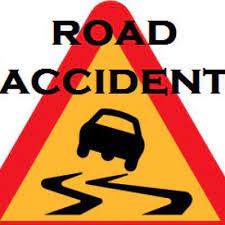ITBP Bus Falls into Sindh River in Ganderbal | Search for Survivors Underway After Tragic Amarnath Duty Return
By: Javid Amin | Srinagar | 30 July 2025
Tragedy Strikes Kullan Amid Torrential Rain
In a deeply tragic incident that underscores the high-risk deployment conditions of India’s security forces, a bus carrying Indo-Tibetan Border Police (ITBP) personnel returning from Amarnath Yatra duty fell into the Sindh River in Kullan, a village in Ganderbal district of Jammu and Kashmir. The incident occurred amid torrential rains that have battered the region for several days.
As of the time of writing, no survivors have been found, and a massive search and rescue operation involving local police, State Disaster Response Force (SDRF), and ITBP units is underway. The tragedy has stirred memories of a similar deadly accident in 2022, when an ITBP bus met with an accident in Pahalgam, killing seven and injuring dozens.
The Setting: Treacherous Terrain and Unpredictable Weather
The region of Kullan, nestled near Sonamarg in Ganderbal, is a known route for Amarnath pilgrims. The journey through this mountainous area is both picturesque and perilous. Monsoon season transforms Kashmir’s rivers from gentle streams into raging torrents. On the day of the accident, sudden cloudbursts and landslides were reported across central Kashmir.
Visibility was severely reduced. Roads were slippery. The Sindh River, usually calm, had swelled with rainwater. The bus—returning from a high-security assignment—slipped off the narrow road and plunged into the fast-flowing river.
This tragic event serves as a stark reminder of the life-threatening conditions faced daily by our paramilitary forces, especially during Yatra season.
The Victims: Brave Men on Sacred Duty
The ITBP personnel onboard were part of a large deployment for the Amarnath Yatra, one of India’s most revered Hindu pilgrimages. The Yatra sees lakhs of devotees every year, and its successful conduct requires the tireless efforts of various security agencies.
Sources indicate that the bus was ferrying at least 35 personnel back to their base camp after completing a shift. Families are being informed, but identities of those onboard have not been publicly released pending confirmation.
No bodies or survivors have been retrieved yet.
Helplines have been set up for families, and the Ministry of Home Affairs is reportedly monitoring the situation closely.
Rescue Operation: A Battle Against Nature
The ongoing rescue efforts are being hampered by the same elements that caused the accident—raging river currents, low visibility, and incessant rain. Rescue boats, divers, and heavy-duty lifting equipment have been mobilized.
The SDRF, Jammu and Kashmir Police, and local villagers are all involved. Special divers from Srinagar have been deployed, and drone surveillance is being considered to spot possible signs of life or floating debris.
Command centers have been set up along the river, and night-time operations are being considered despite the risks, to prevent any delay in locating potential survivors or bodies.
Tragedy Repeats: Echoes of 2022 Pahalgam Crash
This incident painfully mirrors the August 2022 Pahalgam accident, where an ITBP bus fell into a gorge on its way back from Amarnath Yatra. That tragedy resulted in the death of 7 personnel and injury to 32 others.
Post-incident inquiries blamed brake failure and dangerous road conditions. Yet, similar risks remain in 2025, pointing to gaps in:
- Road safety audits
- Terrain-specific driver training
- Infrastructure resilience
Repeated tragedies involving frontline personnel demand institutional overhaul. These aren’t isolated incidents—they’re symptoms of a systemic safety crisis.
Missing Accountability: Why Are Our Forces at Risk?
Several questions have emerged:
- Why were personnel being transported during peak monsoon hours?
- Was the bus roadworthy?
- Were there alternate safer timings or routes?
- Was any pre-monsoon safety protocol followed?
Despite previous tragedies, there appears to be no visible review or upgrade in transport protocols. These lapses result in preventable deaths.
Families in Limbo: Uncertainty and Grief
Back in camps and villages across India, the families of the missing wait in anguish. With no confirmed list of survivors or fatalities, they’re left clinging to hope.
Stories have already emerged of a jawan’s wife from Bihar, who last spoke to her husband a day before the incident. “He said he’d be back in three days,” she recalls, crying.
The families deserve timely information, financial support, and emotional counseling. Most importantly, they deserve truth and accountability.
Human Cost: Numbers Hide the Pain
We often reduce such disasters to statistics—one bus, 35 soldiers, zero survivors so far. But behind each number is a story:
- A father working overtime to pay for his daughter’s education
- A brother saving for his sister’s wedding
- A newlywed who promised to return soon
Their dreams, commitments, and sacrifices now lie submerged in the Sindh River.
What Needs to Be Done: 10 Urgent Steps
- Mandatory pre-deployment vehicle inspections
- Weather-adaptive scheduling for transport
- Equipping buses with GPS and SOS signals
- Driver training for high-altitude routes
- Bridge repair and road widening initiatives
- Regular route risk assessments
- Improved coordination between disaster relief agencies
- Specialised rescue infrastructure in pilgrimage zones
- Mental health and trauma support for families
- Compensation and pensions without bureaucratic delays
Final Word: Honor, Not Silence
This tragedy must not be allowed to fade into memory with a few condolence tweets. These were not just ITBP jawans—they were sons, husbands, and heroes.
Honoring them means learning from this incident and preventing the next one. It means a transparent inquiry, policy overhaul, and institutional respect for the lives we place on the line.
Let the Sindh River not carry away accountability with its current.




